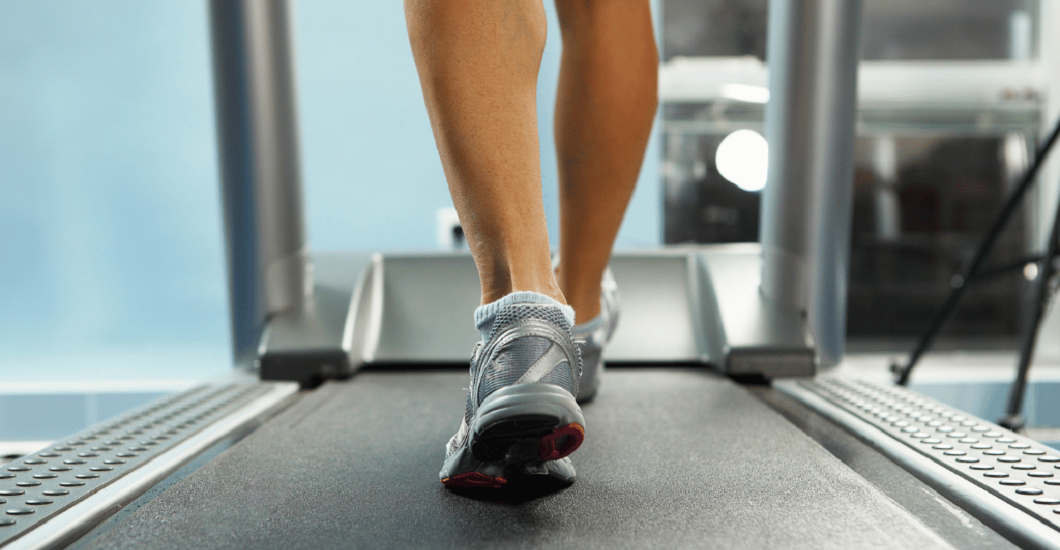Running is a fantastic way to stay fit, boost energy levels, and improve overall well-being. Some people like to run outside. Some people prefer to run on a treadmill. Whether you're a beginner or an experienced runner, everyone can benefit from running faster and longer. In this guide, we'll share easy-to-follow tips to help you achieve better performance and make running an enjoyable part of your life.
Benefits Of Running
Running is more than just a fun exercise. It offers a wide range of benefits for your body and mind. Here are some easy-to-read advantages of running:
Improved Cardiovascular Health: Running gets your heart pumping, which strengthens it over time. A healthier heart means improved blood circulation, lower blood pressure, and reduced risk of heart disease.
Weight Management: Running is an effective way to burn calories, making it helpful for weight loss and weight maintenance. It can also boost your metabolism, helping you burn more calories throughout the day.
Stronger Muscles and Bones: Running is a weight-bearing exercise that engages various muscles and helps build bone density.
Stress Reduction: Running triggers the release of endorphins to reduce stress and anxiety. It's a natural mood booster, leaving you feeling more relaxed and positive.
Improved Sleep: Regular running can help regulate your sleep patterns, leading to better-quality sleep.
Boosted Immune System: Running can strengthen your immune system, making your body more resilient to infections and illnesses.
Enhanced Cognitive Function: Running can improve memory, concentration, and clarity.
Social Interaction: Joining a running group or participating in races can provide opportunities to meet like-minded people and create a sense of community.
Use SupeRun smart treadmills, you can also connect with other people online. People can have some competitions together.
Increased Energy Levels: Running can increase your energy levels. Regular exercise helps combat fatigue and boosts your overall stamina.
Longer Life Expectancy: Studies show that regular runners tend to live longer, healthier lives than those who lead sedentary lifestyles.
How To Run Faster and Longer?
Running faster and longer can seem daunting, but with the right approach and helpful tips, you can gradually improve your speed and endurance. Whether you're a beginner or looking to take your running to the next level, here are some easy-to-read tips to help you achieve your goals:
Evaluate Current Running Level
Evaluating your running pace is essential to assessing your current running level. Your pace refers to how fast you can cover a specific distance, providing valuable insights into your speed and overall fitness.
A clearer picture of your current running level will guide you in setting appropriate goals and tailoring your training to reach new heights in your running journey.
Build Running Endurance
Building running endurance is a gradual process that involves consistent training and smart strategies.
Run Scientifically
Start Gradually: If you're new to running or haven't been running regularly, start with a manageable distance and pace. Begin with a combination of walking and running, gradually increasing the running time as your body adapts.
Follow a Training Plan: Consider following a suitable training plan that gradually increases your running distance and time.
Run at a Comfortable Pace: During your training runs, maintain a pace that doesn't make you being overly breathless. Running too fast too soon can lead to burnout and injury.
Practice Consistency: Aim for regular running sessions throughout the week. Consistency is key to building endurance.
Incorporate Long Runs: Include one long run in your weekly training routine. Gradually increase the distance of your long run each week. These runs help your body adapt to longer durations of exercise.
Use Interval Training: Intervals involve alternating between running at a faster pace and walking or jogging at a slower pace. This method improves cardiovascular fitness and builds endurance more effectively.
Cross-Training: Incorporate cross-training activities, such as cycling, swimming, or strength training, into your routine. These exercises work for different muscle groups and reduce the risk of overuse injuries.
Monitor Your Breathing: Pay attention to your breathing while running. Establish a rhythmic breathing pattern to efficiently supply your muscles with oxygen.
Stay Hydrated and Fuel Properly: Drink water before, during, and after your runs to stay hydrated.
Rest and Recover: Adequate rest is crucial for your body to recover and adapt to the demands of running. Give yourself enough time to rest between runs.
Building running endurance takes time and patience. Be consistent, stay committed, and trust in the process.

Improve Physical Health
Improving your physical health is crucial for enhancing your running performance. Here are some effective ways to boost your physical health specifically for running:
Incorporate Strength Training:
Include strength training exercises to improve muscle strength and stability. Strong muscles help support your joints and improve running efficiency. Focus on exercises targeting your legs, core, and upper body.
Work on Flexibility:
Maintain flexibility through stretching exercises or activities like yoga. Improved flexibility helps reduce the risk of muscle strains and allows for a more efficient running stride.
Warm-up and Cool-Down:
Always warm up before your runs with dynamic stretches or light jogging to prepare your muscles for the workout. After your run, cool down with static stretches to improve flexibility and reduce post-run muscle tightness.

Get Nutrition and Hydration
Nutrition and hydration play a vital role in supporting your running performance and overall health. Here are some key guidelines for maintaining proper nutrition and hydration for running:
Hydration:
Drink water throughout the day: Stay hydrated by sipping water regularly, not just during your runs. Aim for at least 8 cups (64 ounces) of water daily. People can adjust based on their individual needs and climate.
Hydrate before running: Drink 16-20 ounces of water 1-2 hours before your run. If you're running for an extended period or in hot weather, consider consuming an additional 8-10 ounces of water closer to your run.
During the run: For runs lasting more than 45 minutes, sip on water or a sports drink every 15-20 minutes to replenish fluid lost through sweat.
After the run: Rehydrate with water or a sports drink to replace any remaining fluid deficits.

Pre-Run Nutrition:
Eat a balanced meal or snack 1-3 hours before your run. Choose easily digestible foods to avoid discomfort while running.
Consume foods rich in carbohydrates, such as whole grains, fruits, and starchy vegetables, to provide energy for your run.
Include moderate protein in your pre-run meal or snack for muscle repair and maintenance.
Choose foods low in fat and fiber to prevent gastrointestinal distress during your run.
Fuel During Long Runs:
For runs lasting over an hour, consider consuming additional fuel like energy gels, sports drinks, or energy bars containing easily digestible carbohydrates to maintain energy levels.
Consume a combination of carbohydrates and protein within 30-60 minutes after your run to replenish glycogen stores and aid muscle recovery.
Include a source of protein, such as lean meats, fish, eggs, dairy, or plant-based alternatives, to support muscle repair.
General Nutritional Guidelines:
Consume various nutrient-dense foods, including fruits, vegetables, whole grains, lean proteins, and healthy fats, to meet your nutritional needs.
Ensure you get essential vitamins and minerals like iron, calcium, and vitamin D, which are important for overall health and performance.
Everyone's nutritional needs may differ, so pay attention to how specific foods and eating patterns affect your energy levels and performance.
Here's a simple "General Nutritional Foods" sheet commonly considered nutrient-rich and beneficial for overall health.
| General Nutritional Foods |
|
Fruits and Vegetables - Apples, bananas, berries, oranges - Spinach, kale, broccoli, carrots - Rich in vitamins, minerals, and antioxidants |
|
Whole Grains - Brown rice, quinoa, oats, whole wheat bread - Excellent source of fiber and complex carbs - Provide sustained energy |
|
Lean Proteins - Chicken, turkey, fish, tofu, legumes - Support muscle repair and growth - Important for overall body function |
|
Nuts and Seeds - Almonds, walnuts, chia seeds, flaxseeds - Rich in healthy fats and essential nutrients - Good for heart health and brain function |
|
Dairy Products - Milk, yogurt, cheese - Good sources of calcium and vitamin D - Important for bone health |
|
Healthy Fats - Avocado, olive oil, fatty fish (salmon) - Provide essential fatty acids - Support cell function and nutrient absorption |
|
Legumes - Beans, lentils, chickpeas - High in protein and fiber - Good for heart health and digestion |
|
Eggs - Rich in high-quality protein and nutrients - Contain essential vitamins and minerals - Beneficial for muscle and brain health |
|
Berries - Blueberries, strawberries, raspberries - Packed with antioxidants and vitamins - Support immune function and cellular health |
|
Sweet Potatoes - Rich in vitamins A and C - Provide complex carbs for sustained energy - Good for skin health and immune system |
|
Green Tea - Contains antioxidants and polyphenols - May improve metabolism and brain function - Support overall health |
|
Dark Chocolate - High cocoa content (70% or higher) - Rich in antioxidants and flavonoids - May have heart-healthy benefits |
A Healthy Mindset
Having a healthy mindset is essential for running and achieving your fitness goals. A positive and focused mental outlook can enhance your running experience and overall performance. Here are some key aspects of a healthy mindset for running:
Set Realistic Goals:
Establish achievable and measurable goals for your running journey. Realistic goals provide motivation and a sense of accomplishment, whether it's improving your pace, running a certain distance, or participating in a race.
Enjoy the Process:
Acknowledge that progress takes time and effort. Enjoy the journey of improvement and appreciate the small victories along the way.
Practice Patience:
Be patient with yourself and your progress. Running is a continuous learning experience, and encountering challenges is normal.
Focus on Effort, Not Perfection:
Shift your focus from being perfect to putting in your best effort. Celebrate the hard work you put into your runs, regardless of the outcome.
Respect Your Body:
Pay attention to your body's cues during runs. Respect its limits and take rest days when needed. Avoid comparing yourself to others and honor your pace and abilities.
Overcome Mental Barriers:
Address any mental barriers or doubts that arise during your runs. Practice positive affirmations and mental strategies to stay motivated and focused.
Find Joy in Running:
Remind yourself of the joy and satisfaction running brings. Whether it's the feeling of accomplishment after a run or the sense of freedom on the open road, find ways to enjoy the process.
Celebrate Progress:
Celebrate every achievement, no matter how small. Recognize your improvements and milestones, and use them as motivation to keep pushing forward.
Learn from Setbacks:
View setbacks as learning opportunities, not failures. Analyze what went wrong, adjust, and move forward with newfound knowledge and determination.
Stay Grateful:
Cultivate gratitude for the ability to run and the experiences it brings. Appreciate the opportunity to be active and challenge yourself physically and mentally.
Conclusion
In conclusion, running faster and longer is achievable with dedication and smart training.
Progress takes time. Be patient with yourself and celebrate each small achievement. With these tips and a positive mindset, you'll see improvements in your speed and endurance, making your running experience more enjoyable and rewarding. Happy running!







Leave a comment
All comments are moderated before being published.
This site is protected by hCaptcha and the hCaptcha Privacy Policy and Terms of Service apply.